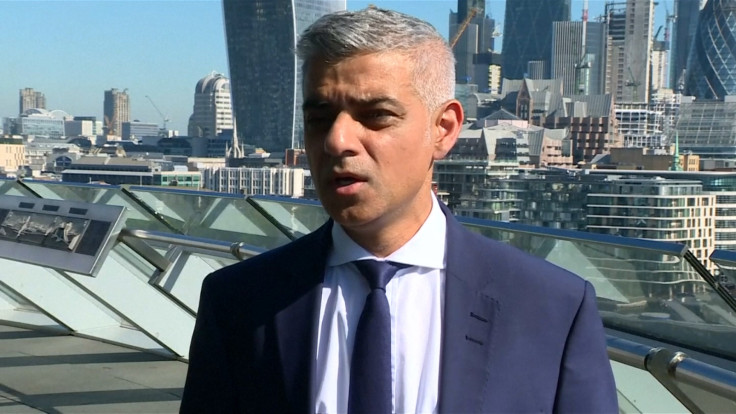'No deal' Brexit will cost UK economy £54bn and lose half a million jobs by 2030, study warns
KEY POINTS
- London Mayor Sadiq Khan warns "lost decade" in 'no deal' Brexit.
- Cambridge Econometrics predicted outcome of five possible scenarios, including 'Norway option'.
- Government says UK is working on 'best and most ambitious' Brexit deal.
A 'No deal' Brexit could result in the UK economy losing £47bn in investment and half a million jobs by 2030, according to an impact assessment.
The study, commissioned by mayor of London Sadiq Khan, set out to review five possible scenarios for when Britain leaves the EU, ranging from leaving just the single market, leaving just the customs union, as well as both together.
The analysis from Cambridge Econometrics said the worst case scenario – leaving the EU in March 2019 with no deal or arrangements in place – would result in 482,000 fewer jobs, including 87,000 lost in London, and a loss of £46.8bn in investment by 2030.
Khan warned if the government continues to "mishandle" the current negotiations with the EU, Britain could be heading for a "lost decade of lower growth and lower employment".
He added: "The analysis concludes that the harder the Brexit we end up with, the bigger the potential impact on jobs, growth and living standards.
"Ministers are fast running out of time to turn the negotiations around. A 'no deal' hard Brexit is still a very real risk – the worst possible scenario."
The study also predicts a no deal Brexit could see the UK's economy output lower by 3% by 2030 – the equivalent of £55bn les s– compared to if the UK remained within the single market and customs union.
Elsewhere, if the UK ended up with the so-called Norway option – remaining in the single market but eventually leaving the customs union – the UK could still be hit with more than 175,000 fewer jobs and a drop of nearly £19bn in investment.
Ben Gardiner from Cambridge Econometrics said: "Our analysis is particularly valuable to local leaders because it indicates the potential impact on employment and output of Brexit under a range of scenarios, which is necessary given the uncertainty surrounding the final outcome of negotiations."
Discussing the study, Gareth Bacon, group leader of the GLA Conservatives, said Khan has "simply produced a continuation of his widely-publicised anti-Brexit views".
He added: "This is hardly a surprise, particularly given that most of the authors of this 'independent' report are already on record as vehemently opposing Brexit.
"The fact is, the economic collapse that Remainers like Sadiq Khan predicted would happen immediately after the referendum, has not occurred.
"The government and the European Union are engaged in long and complicated negotiations and, until the outcome is known, this is merely scaremongering and speculation."
A spokesperson for the Department for Exiting the EU said: "The fact is we are working to secure the best and most ambitious Brexit deal for the whole of the United Kingdom.
"December's European Council showed that, having made sufficient progress, both sides believe we will achieve an ambitious deal securing prosperity for the UK and EU27.
"We have made good progress, having reached an agreement with the EU on some very difficult issues such as citizens rights and the financial settlement, and we are looking forward to starting the next round of negotiations.
"The UK wants a deep and special partnership with the European Union, a partnership that spans a new economic relationship and a new relationship on security."






















